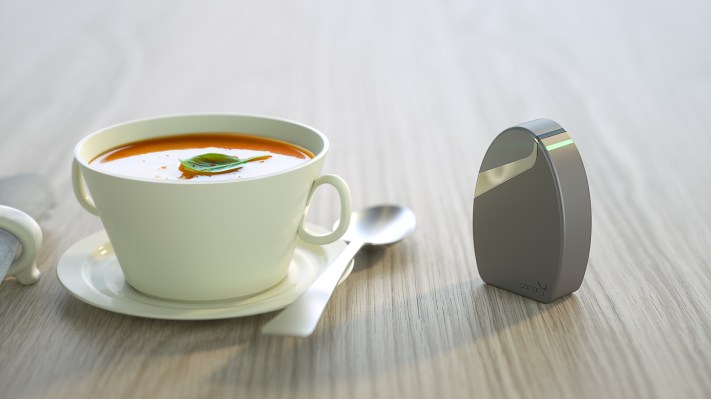There are 15 million people in the U.S. with food allergies, and until recently they haven’t had a good, reliable, and affordable way to test meals to ensure they don’t eat something they shouldn’t. That results in more than 200,000 hospital visits a year related to food allergies or food sensitivity.
A startup called 6SensorLabs wants to change that, by building an affordable device that will allow them to quickly and easily check foods for allergens. The company is also hoping to build a mobile app that will help its users share the results of their tests with others and educate them about which restaurant items are safe for those with food allergies or food sensitivity.
There are a number of food allergies 6SensorLabs could help detect, but it’s starting with gluten. The company hopes to bring to market its low-cost, portable sensor early next year to help users with Celiac Disease, as well as those who have decided to move to a gluten-free diet for other reasons.
Along with the sensor, which will cost less than $150, users will need to buy disposable, one-time use units that they put their food in for testing. The price of the disposable units has not yet been determined.
Finally, the company will have a mobile app to pair their sensor with a user’s mobile phone. That app could also be used to share the results of tests for various foods with other users so they, too, can know if food is safe to eat without doing the testing themselves.
The company was co-founded by Shireen Yates and Scott Sundvor, who first started working on the product at MIT. Yates has been gluten-free for years, and found that it was always difficult to determine which foods were ok for her to eat. She explored the idea of a food-testing device at MIT with Jonathan Kiel, who had received a PhD in chemical engineering.
Sundvor had studied Mechanical Engineering at MIT and had worked in early product dev at Johnson & Johnson before teaming up with Yates. Together they came to San Francisco and began prototyping the device at hardware accelerator and early-stage investment firm Lemnos Labs. Meanwhile, Kiel stepped into an advisory role with the company.
Since then, they’ve raised $4 million in seed funding from a group of investors to accelerate product development and soon bring a product to market. Upfront Ventures led the round, which also included participation from SoftTech VC, Lemnos Labs, Mitch Kapor, SK Ventures, and Xandex Investments.
